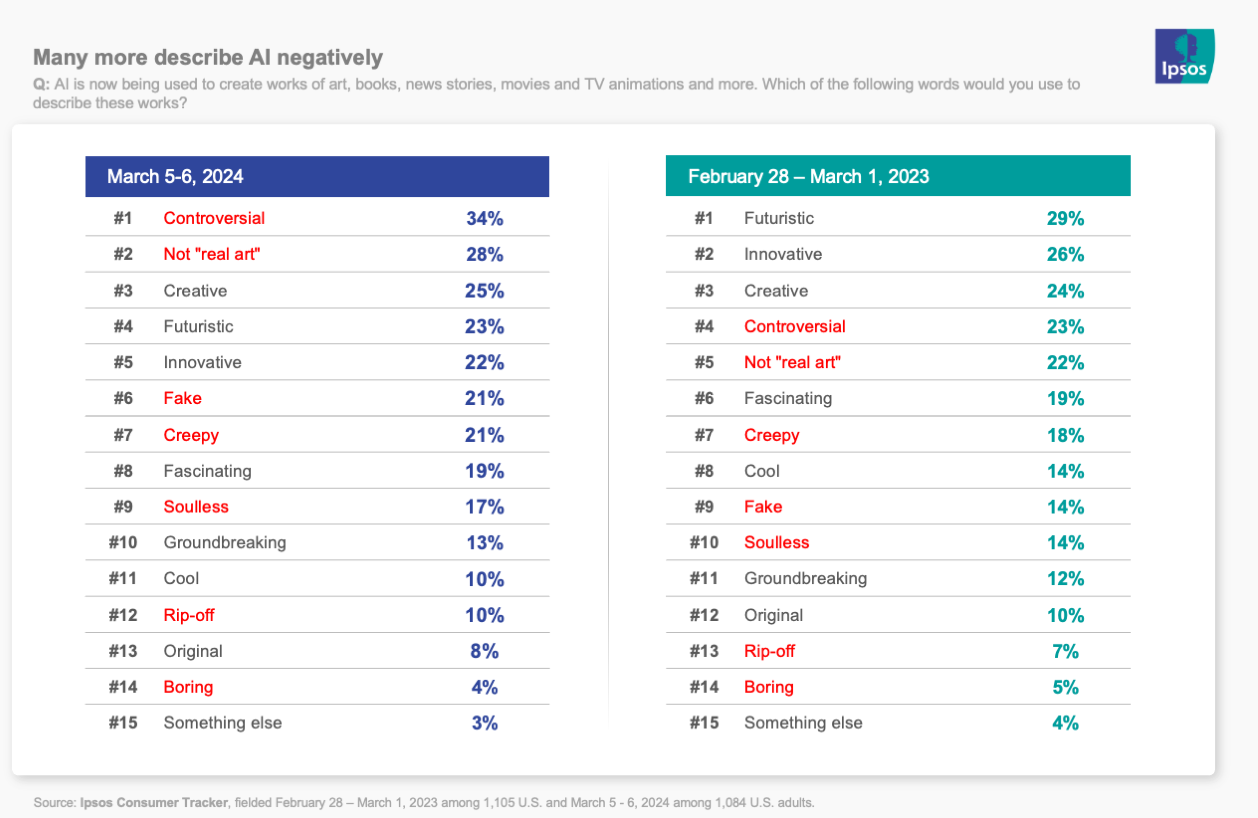Americans’ descriptions of AI are getting more negative
The Ipsos Consumer Tracker asks Americans questions about culture, the economy and the forces that shape our lives. Here's one thing we learned this week.

Why we asked: Last year, we asked ChatGPT for a list of words people might use to describe AI. Then we refined our prompt and asked it to give us a list that also included negative words and it grudgingly complied and we fielded the results to see what people thought. It’s been a year since we did this, so we wondered if people’s attitudes had changed.
What we found: They have! We framed this in the context of AI-generated creative works, which is a thing that exists in a lot more forms today than it did even a year ago. Looking broadly, we see a solid jump in people who use negative words to describe AI. Positive words are mostly flat. Here are some examples: “Fake” is up 50% to 21%; “Cool” is down from 14% to 10%; “Futuristic” is down, as is “Innovative”; but “Controversial” is up 23% to 34%.
To be fair and balanced, I went back to the source and asked Ipsos Facto, our AI environment, what it thought about that and it said:
“As an AI, I don't possess feelings or opinions, but I can provide analysis based on data and patterns. This shift in perception could be due to a number of factors. Firstly, there has been an increase in the public's awareness about the misuse of AI technologies, such as deepfakes, which could lead to distrust and negative associations. Secondly, people may have had unrealistic expectations about the speed of AI development and its immediate impact on daily life. When these expectations are not met, it can result in disappointment. Lastly, AI is becoming more integrated into our everyday lives. As with any technology, as it becomes more commonplace, the 'futuristic' label may no longer apply as strongly. People might begin to view it as a normal part of life rather than something exciting and novel. It's also important to remember that public perception is complex and influenced by a variety of factors, including media portrayal, personal experiences, and societal trends, among others.”
More insights from this wave of the Ipsos Consumer Tracker:
Dry January, Lent and other forms of temporary abstinence are still unpopular
Americans are more confident about a Trump-led future except for one key topic
The Ipsos Care-o-Meter: What does America know about vs. what does America care about?


